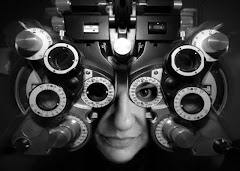The Kennedy family powerhouse, Senator Edward Kennedy, D-Mass., died yesterday at age 77, just a few days after his sister, Special Olympics founder Eunice Kennedy Shriver. August 2009 has seen two of Joe and Rose Kennedy’s children pass away, a family story unique to the world, one not even the finest writer could have plausibly constructed.
Whatever you wish to say about him, Ted was one incredibly tough old bird. How many of you would even be functioning at all, much less be able to hold together a stellar political career after the mind-boggling tragedies his family has seen? I don’t need to go down the rather stunning list of assassinations, accidents, illness, substance abuse, and scandal. The Kennedy’s lives were played out on the grandest stage, before the entire world; we all saw and were shocked, saddened, angered, outraged, changed for it.
Ted Kennedy was elected a United States Senator the year I was born, 1962, and kept his job all of those 47 years. Through all those personal and political changes – incredible, by anyone’s measure – he came in to do his job. He did not quit. He did not waver from his strong liberal stance for a minute. He did not stop working to bring together Republicans and Democrats, and did so more than any other politician I can think of. This is how you get things done, how you can effect real change. You must know how to speak the language of your opponent, and convince your opponent that you are not the enemy. You must occasionally pull up on the choke-chains of your peers, reminding them that their bosses are you and me, not Philip Morris or Haliburton or General Motors or the pharmaceutical profiteers. And when that doesn’t work, you stand your ground, tenacious and unblinking, until you are the last man standing.
Ted Kennedy, from a rich and powerful family, could have done nothing with his life and been well-excused for it. But instead, he got big big stuff done, in a venue that is littered with endless talk and little action, filled with self-serving self-righteous prats in blue suits who so easily forget the incredible privilege of service.
As it often seems with stars, the highly-accomplished, the driven, Ted Kennedy had some substantial internal demons. The most noble often have the darkest, ugliest depths to deal with as well. It’s been forty years since Kennedy’s Chappaquiddick scandal, and public outrage is still there, almost as fresh as it was that summer. I was seven years old at the time and I remember the news reports very well. My father was so angered by one of them that when he snapped the television off in utter disgust, the knob cracked and broke off in his hand. I remember a shaggy-haired Ted in the neck brace, walking with his pretty blonde wife Joan, and the one static picture of Mary Jo Kopechne with her Mona-Lisa-like smile, unaware then of her horrible fate to come. I remember everyone saying that this would kill the young senator’s chances for the presidency, and they were right. The weakness that Kennedy showed in that moment put doubt into the minds of the public about his character, and the nation as a whole would never embrace him fully after that. Only Kennedy would know exactly what he did that night, and why, and the truth will be buried with him. A young woman lost her life, and that should never be excused nor forgotten.
It’s hard to sum up a man like Ted Kennedy, because for all that he did, stellar and reprehensible both, for all we have seen of his life and the lives of his siblings and spouses and children and cousins in the media, there was something closed about him. He had the New England character to him, it seemed, where only the closest to him might see his guard let down, and maybe not even then. I wonder how he defined his own life, himself, how he was able at all to process what it meant. I wonder if he didn’t often not want to think about that at all. I wonder if he thought he had a good life.
This quote from Kennedy, after he became head of the family after the deaths of Robert Kennedy and his father Joe, struck me:
"I can't let go," Kennedy once told an aide. "If I let go, Ethel (Robert's widow) will let go, and my mother will let go, and all my sisters."Edward Kennedy was finally able to let go. One can only imagine how strong his grip was.
 By George Silk/Time & Life Pictures/Getty Images.
By George Silk/Time & Life Pictures/Getty Images.


